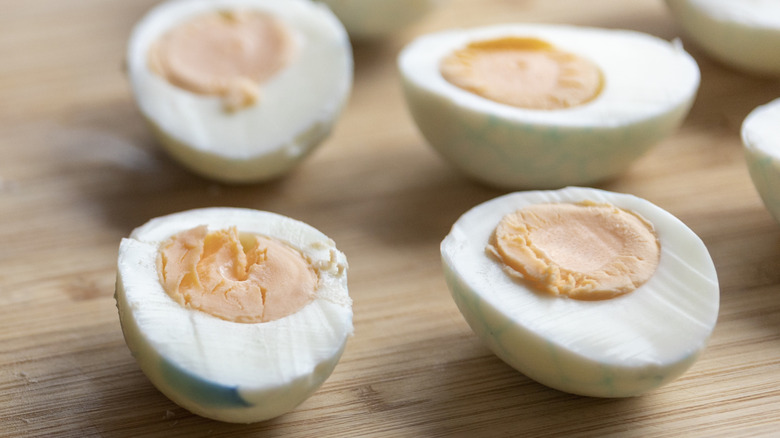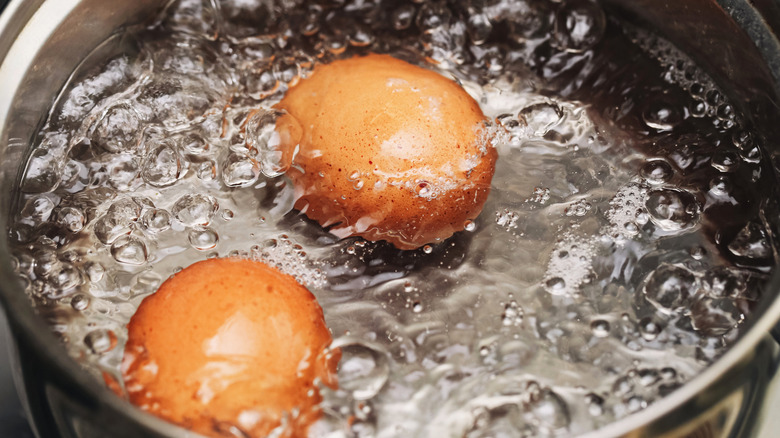The Key To Achieving Perfectly Centered Hard-Boiled Egg Yolks Every Time
Deviled eggs are having a moment these days. They've long been standard picnic fare, but in recent years they've also started appearing on restaurant menus, often in glammed-up form. There are all kinds of ways to tweak the basic formula, with additions ranging from punchy horseradish for zing to potato chips for crunch, and one of our favorite deviled egg recipes involves filling them with a non-standard combo of apples and crabmeat. However, there's one thing standing in the way of deviled egg perfection: those pesky off-center yolks. Fortunately, Antelmo Ambrosio, an executive chef at the Merchants Hospitality group, exclusively offered The Takeout some advice on how to avoid this common problem when preparing hard-boiled eggs.
For starters, he recommended using eggs that are all similarly sized, which is usually the case with ones from a supermarket carton. The next step, however, may be even more crucial: "Bring them slowly to temperature so the yolk doesn't shift abruptly, and cool them immediately so the yolk sets in place," he said. If you heat the eggs too rapidly, this may cause the yolks to shift, and it's possible they'll continue to move until they've been shocked with cold water to stop the cooking.
Other pro tips for perfect boiled eggs
Antelmo Ambrosio is a font of eggs-pert advice, and he had several other tips that can help ensure your boiled eggs come out looking as good as they taste. He agrees with the well-known advice that fresh eggs aren't the best for boiling, explaining, "Farm-fresh eggs are more difficult to peel than older eggs." Instead, use supermarket eggs, since these have likely been aging for a month or two. He also recommends taking the eggs out of the refrigerator before you cook them. "Room-temperature eggs reduce shock when placed into hot water."
As you cook the eggs, Ambrosio advised, "Avoid a rolling boil that causes eggs to bounce around and knock each other." (This might be a contributing factor to making the yolks get off-center.) As soon as the water reaches a boil, either lower the heat to a simmer or turn off the burner entirely and allow the eggs to finish cooking in the water's residual heat.
Once the eggs have cooked for 10 to 12 minutes, get them into ice water right away, and keep them there for at least 10 more minutes. According to Ambrosio, this stops the eggs from cooking and makes it easier to peel the shells. He suggests peeling them either in a bowl of cold water or under a running stream of the same, sharing that the water helps separate the egg from the outer shell and membrane. The easier the shell comes off, the less likely it is to create divots that spoil the appearance of the eggs.

